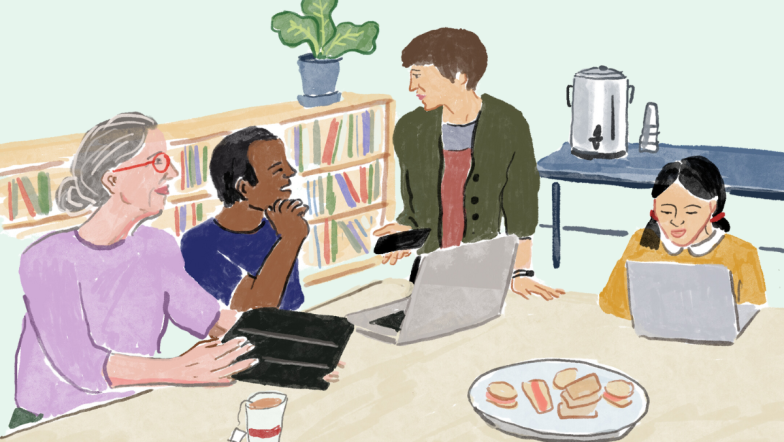Addressing elder abuse through a National Register of Enduring Powers of Attorney (EPOA)
18 Aug 2021
From our 10+ years’ experience providing specialist legal help to older people in Australia, we know that preventing elder abuse improves personal and financial outcomes for both older people and the wider community.
In this context, we support the current consultation process by the Federal Attorney-General’s Department, building on the Australian Law Reform Commission’s (ARLC) proposal to create a National Register of Enduring Powers of Attorney (National Register) as a key legal tool to address the impact of financial elder abuse on older people.
How a National Register can prevent financial abuse of older people
Financial abuse is the most common form of elder abuse, inflicted on older people by someone they trust such as a family member, friend or carer. Financial elder abuse can include the misuse of an older person’s money, improper use of banking or credit accounts, transfer of property without proper payment, or the misuse of Enduring Powers of Attorney (EPOAs) by someone legally appointed (the attorney) to make decisions on a person’s behalf (the principal) in legal, financial, and personal matters.
Often a family member is appointed to the role of attorney. Even though the attorney is required by law to act in accordance with the principal’s wishes, problems can arise – including acts of financial elder abuse akin to theft.
To reduce the impact of financial elder abuse, the ARLC proposed a broad range of reforms for EPOAs to reduce elder abuse, including the harmonisation of laws throughout Australia, and the establishment of a National Register.
A National Register would require all EPOAs relating to financial matters to be registered, enabling information about an EPOA to be searched and verified by authorised users such as banks, and reduce the risk of fraud and forgery.
Why we recommend putting sufficient safeguards in place
To best ensure full and equitable access to the National Register by all older people, including those facing elder abuse, we made 13 evidence-based recommendations including funding specialised legal supports, multi-channel service delivery, digital consumer outreach strategies, and human-centred design principles that involve people with lived experience.
Read our submission
Our key recommendations include:
- Harmonising the Australian legal framework to incorporate better protections for principals for misuses of EPOAs by attorneys,
- Ensuring that the National Register is accessible to all older people,
- Mandating revocations of EPOAs and Notifications to attorneys, to ensure accurate information and prevent elder abuse; and
- Including other enduring appointments such as Enduring Guardianships and EPOAs for personal matters in the National Register.
Our submission builds on our attendance at the Attorney-General’s Department National Register of EPOAs stakeholder roundtable on 30 June 2021 and our extensive experience working with older people to implement enduring documents to protect them from elder abuse in their older age.
In 2020, despite the impacts of COVID-19, our Health Justice Partnerships in Victoria and New South Wales provided legal help to 338 clients, of which 46% related to guardianship and administration matters.
Read our full submission

